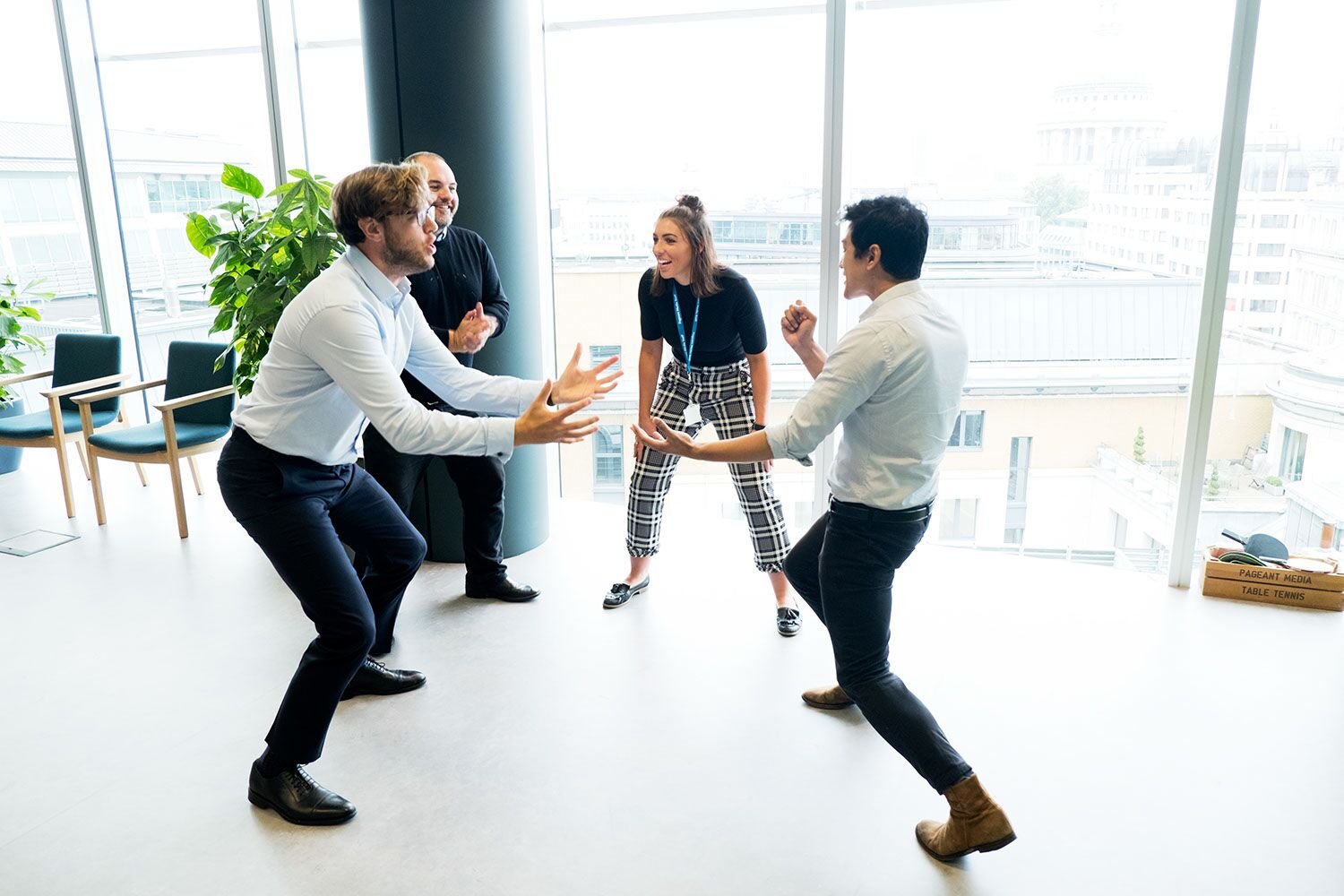
Yes, and
If you’ve heard of improvisation, impro, improv comedy or applied improvisation, you’ve probably heard the expression ‘Yes, And’.
What is Yes, And?
‘Yes’ is to accept an ‘offer’. ‘And’ is to build on that offer.
‘Yes’ is to agree to be on a threshold. ‘And’ is to step over that threshold and offer, receive or discover new information.
When we improvisers say ‘Yes, And’ to an offer, we allow for divergent (aka ‘blue-sky’) and creative thinking that follows the points of interest and engagement in a conversation, rather than following a pre-written agenda.
It also makes sure – because we always accept the ‘Yes’ and specifically build on that ‘Yes’ with our ‘And’ – that everyone remains on track and on topic, without any wild or left-field or non-relevant additions.
It also means there are no denials or blocks and, equally, there are no wildly disparate or ‘out there’ suggestions. So by creating an environment without blocks, wild tangents or stagnant thinking, ‘Yes, And’ keeps a group on topic, imaginative and in flow.
Improvisers acknowledge that many people (ourselves included), prefer to say ‘No’ or ‘Yes, But’.
Saying ‘No’ makes humans feel more in control and safe.
“Shall we try this new thing?”
“No!” (I’m busy, it’s untested, there’s good reasons not to – and essentially, it feels safer to say “No”).
Saying ‘Yes, But’ makes humans feel more in control and safe – and sometimes a bit cleverer.
“Shall we try this new thing?”
“Yes, But… Before we do, I can see and will now list a number of clever reasons why it might not work.” (I’m in control of my fear and the possibility of the unknown. I sound open to it but essentially, I might not like it, so it feels safer to say “No”).
However, we are programmed, as humans, to keep ourselves safe. So we can afford to go with the flow a bit more often and to work our ‘accept and build’ muscles.
When we get in the habit of saying ‘Yes, And’, it guarantees more focused, meaningful conversations, clearer routes to creativity, better teamwork. It puts more options on the table. Even better, it encourages imaginative connections instead of competitions involving egos. It’s good for rapport. It means we think fast and shiny. It’s the clearest route to pure play.
And play is key. Play where we imagine, invent, create, and solve. Play is how and where we humans human to our best potential.
Try a ‘Yes, And’ mindset today.
Testimonials
“In my daily work as a journalist the concept of conscious incompetence has been really helpful. I was reminded that I can’t have all the information or get it right all the time.”
“What an absolutely wonderful night you facilitated for us all! Everyone had a brilliant time: you were also all such amazing impromptu impro describers, adding an additional comedic touch to the scenes. It served as fantastic access for us all. It’s as if you’d had months of training! You were all such naturals and so inclusive. I wish we’d filmed it.”
“Great session, really enjoyed the activities and can see how beneficial it would be for creative teams.”




